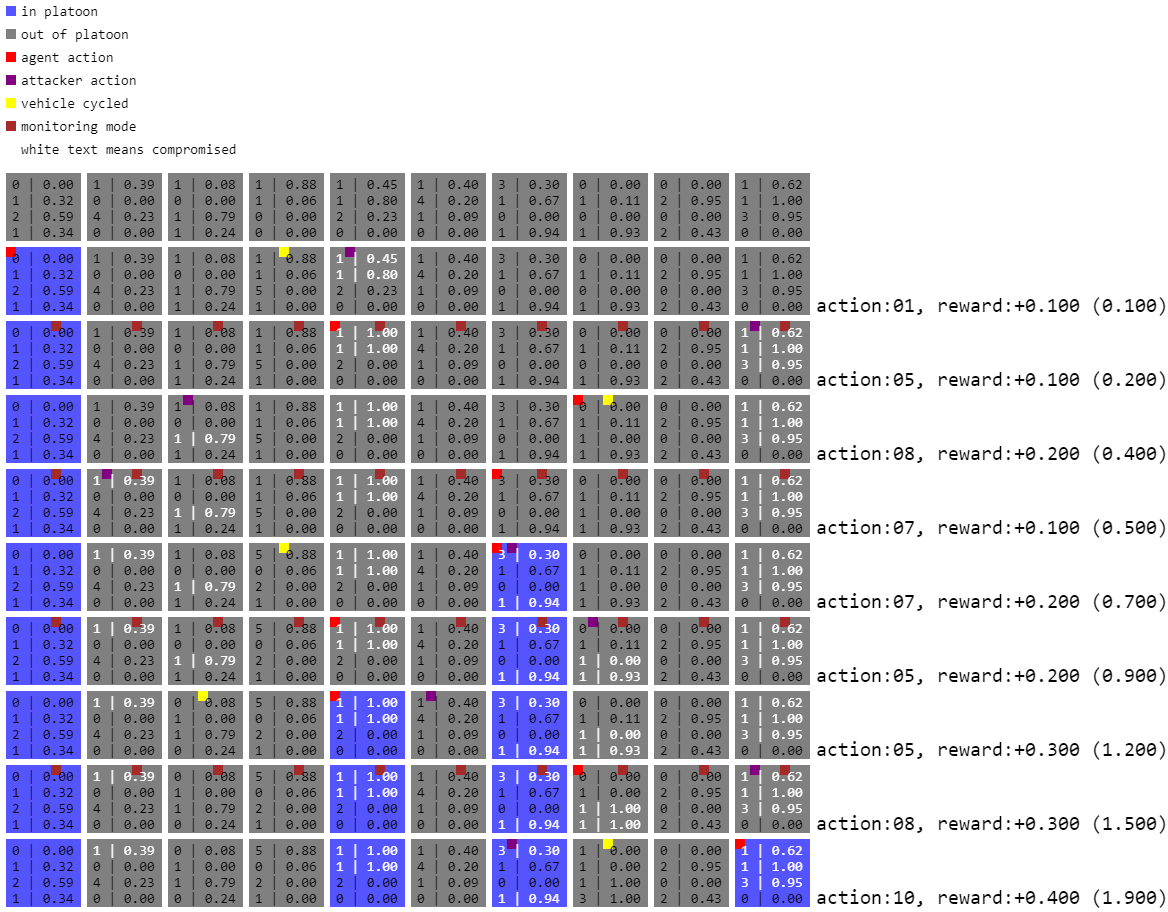Code for my thesis involving autonomous vehicle security using game theory and reinforcement learning.
- minimax game.ipynb - Minimax game implementation and solver
- platoonenv.py - Environment for the reinforcement learning models, Platoon-v6 is what you want
- training.ipynb - Training of the reinforcement learning models
- comparison.ipynb - Comparison of the reinforcement learning policies
Anything in the ./old/ folder is likely outdated, but might give insight into the development process.
Ensuring the step-wise rewards are between -1 and 1 was very effective at improving the learning. Here's the full response from the slack for more info:
- I personally would not use curiosity exploration until after I got a baseline version working first.
- Does your observation include information about which row it is deciding an action for. You are not using framestacking or an rnn policy in your config. A pure feedforward policy could not learn to keep track of that information on its own.
- You want to keep your rewards smaller preferably between 0 and 1. Also I have found that I get much better results it I return an instantaneous reward rather than cumulative on each step. So for example +/- for the square that was just turned on. Then at the end you can supply a terminal reward for the overall score. The reason is because targrt values will based on the return which will be a discounted sum of all the rewards in that episode. That adds a lot of extra counting of rewards and it makes it harder to distinguish good actions from bad ones (credit assignment).
- Rllib's implementation of value clipping will Clio if the values loss is greater than 10. I would bet, given your rewards, that almost all of your experience steps are bring clipped. When a step is clipped, it will not be learned on. You can set the vf_clip to float("inf") to disable and see if that makes a difference. Whatcha or for Nan's during training if you do that though. (edited)
- Python dependency management is evil
- Python dataclasses are lit
- Ray RLLib is a great tool for reinforcement learning
- Canvas is easier than pygame for RL environment rendering
- Plays nicer when in remote Jupyter notebooks
- Reward shaping for RL is hard
- PPO rewards should be between -1 and 1
- Matplotlib makes it very easy to visualize data
- Jupyter notebooks are great for prototyping, but it became necessary to move the environment into a separate file to keep things clean
